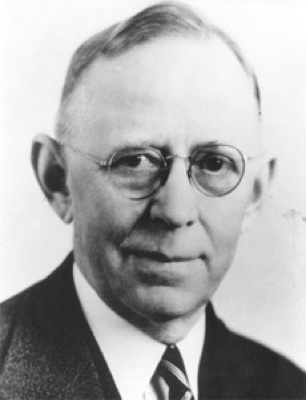America Was Made Great by People Who Did the Work Americans Wouldn’t

John W. Nordstrom
John Nordstrom left his very modest farm in northern Sweden in 1887 and joined the mass migration to America, a human tidal wave that made possible America’s economic dynamism, feeding its material development. He, like so many other young people before and after, found himself both severely limited by economic circumstances at home and caught up in the romance of “America fever,” a force which then raged across the European continent, but later spread to nearly every other part of the world.
Young John Nordstrom accepted the widely circulating premise that if he could somehow make it to America, he had a greater chance to achieve some level of economic security than if he stayed put. The fact that he eventually, after having undergone a series of harrowing failures in farming, construction work, mining, and logging, ended up opening a successful shoe store in Seattle made his story different than most.
The life story of this founder of Nordstrom, the high-end department store which recently garnered headlines by refusing to sell clothes with the Ivanka Trump label, points to the typicality of his experiences rather than their uniqueness. Individuals migrate, not groups, and their migrations involve complicated strategies, taking into account the benefits and liabilities of staying home or going away. They assess, like the teenager from northern Sweden and all those in the present, which of the possible American destinations open to them might be best. They figure out the financing of their journeys, learn about available modes of transportation, and activate family and hometown networks in the place they decide upon as their goals.
One particularly noteworthy detail in Nordstrom’s story deserves a special moment of thought in light of current and erroneous thinking about immigration and its impact on American society. The young man whose roaming around late nineteenth century America eventually paid off so mightily with his showy department store, began his American career by moving from job to job in the Midwest and then drifting off to Washington, Oregon, and Alaska, with a few fellow Swedes, none of whom knew any English. He describes in his memoir, The Immigrant in 1887, how he found a job in an iron mine in Stambaugh, Michigan, located in the appropriately named Iron County.
The county existed in no small measure because of the rich lode of iron ore deep beneath its surface. The county and the surrounding region rose or fell because of the iron veins, whose extraction helped fuel American industrial expansion. But in order to extract that richness, the owners of the mines needed workers.
Nordstrom and his friends, unschooled young men, understood the direct relationship between the underground reserves of iron and their own physical strength. He and his co-immigrants felt fairly confident that once they showed up in Stambaugh they could put their bodies to work and make their wages. He recalled with a degree of retrospective bravado in his memoir, “we knew we could get jobs there.” What made him, a young man with relatively no education, no English, so sure? “They always needed men,” he remembered. More important than Nordstrom’s cockiness about the job situation, he had quickly figured out the American landscape when it came to the matter of immigrants and work: “Greenhorns like us were the only ones they could get.”
Nordstrom offered one of the most insightful comments ever pronounced about the long history of immigration: “No American would work there.”
In this centuries-old arc of time, new immigrants never took jobs away from Americans, but took precisely the kind of work that Americans would not do themselves. Americans who would not do this work certainly wanted it done. White American women in the nineteenth century, native-born and mostly Protestant, expressed utter disdain for domestic service. Irish Catholic women, however, flooded America’s shores to labor in the homes of Americans, cooking, cleaning, and tending their children. Like John Nordstrom they understood that they “were the only ones they,” meaning Americans, “could get.”
When Americans, both the robber barons who made the profits or the public at large, wanted a network of railroads to link the coasts, to connect the cities with the farms, they found men from Ireland, central, eastern, and southern Europe, from Mexico and China willing to dynamite the landscape, lay the tracks, and make America great. Americans came to savor fruits and vegetables, meat and grains from distant regions of the nation, they relied upon immigrant labor to put that good food on their tables.
Whether we contemplate the American history of textile manufacturing, garment making, machine production, logging, and mining, immigrant labor produced the American economic juggernaut. Their labor, the young man from northern Sweden told us, did not come at the expense of Americans, but to the contrary, Americans would not do it so these newcomers, women and men, stepped in and did so instead.
This story has proceeded, nearly uninterrupted. Today, every time we decide we want someone to clean our homes, tend to our children, provide care to our elderly, or drive the taxis which ferry us from one place to another, we turn to immigrants, in large measure because Americans, including importantly the children of these immigrants who become Americans, do not choose to support themselves and their families by doing these and the many other tasks which keep us cared for, fed, and comfortable.
John Nordstrom’s recollections could not have been more accurate and more emblematic of American history. Had he or another immigrant like him not gone down into the Iron County mine, America’s industrial greatness would have stalled. His willingness to do so did not leave an American bereft of work just as today’s immigrants do not either.